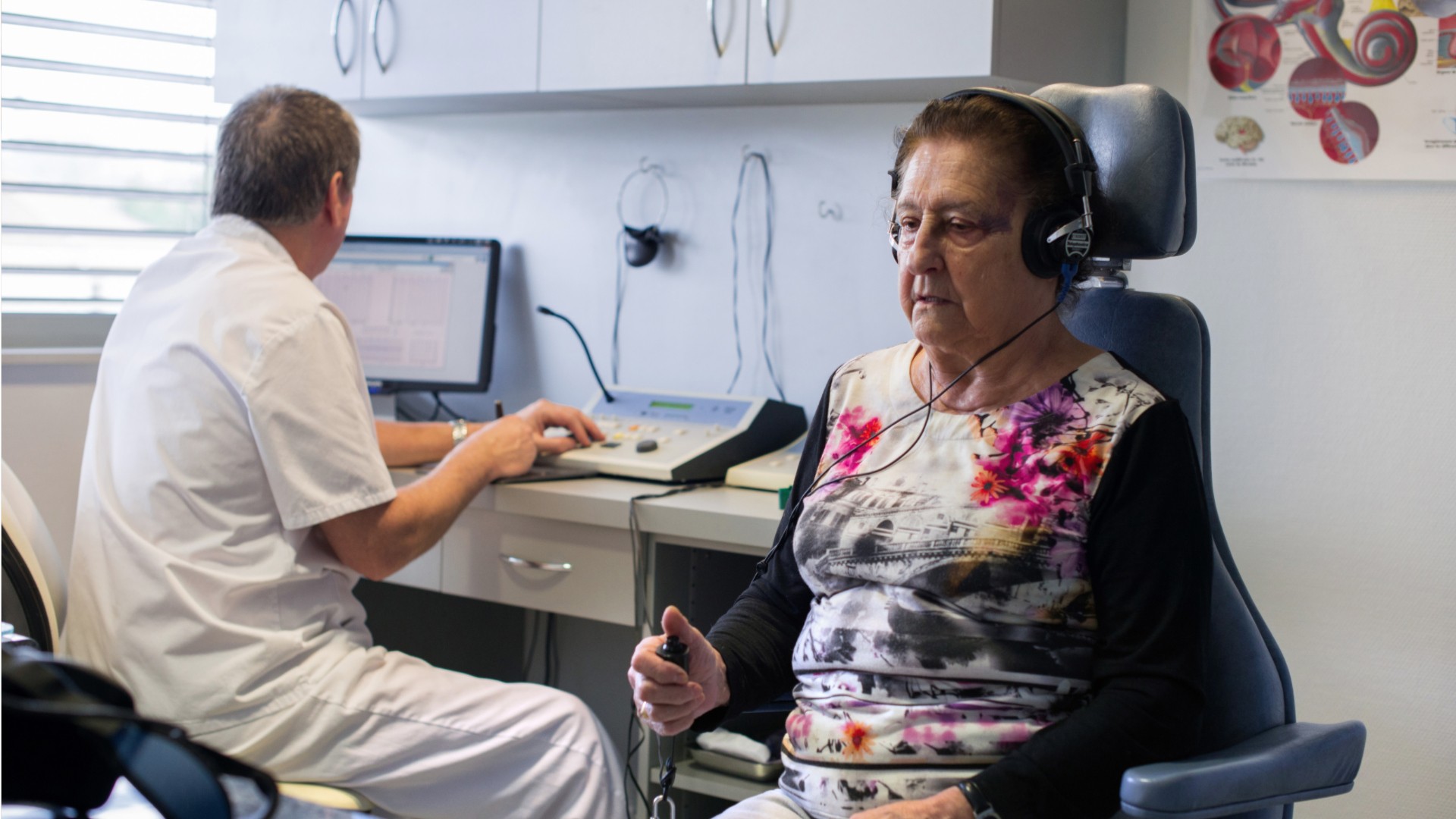Audiologists
Audiologist, Audiology Doctor (AUD), Clinical Audiologist, Educational Audiologist
 Select a military branch to see samples.
Select a military branch to see samples.
Audiologist
Audiology; Medical Service Corps Officer; Preventive Medicine Sciences
No similar titles were found.
No similar titles were found.
Occupational Audiologist
Audiologist
What they do:
Assess and treat persons with hearing and related disorders. May fit hearing aids and provide auditory training. May perform research related to hearing problems.
On the job, you would:
- Maintain patient records at all stages, including initial and subsequent evaluation and treatment activities.
- Evaluate hearing and balance disorders to determine diagnoses and courses of treatment.
- Fit, dispense, and repair assistive devices, such as hearing aids.
Knowledge
Business
- customer service
- sales and marketing
Health
- therapy and counseling
- medicine and dentistry
Math and Science
- psychology
- biology
Arts and Humanities
- English language
Skills
Basic Skills
- listening to others, not interrupting, and asking good questions
- reading work related information
Problem Solving
- noticing a problem and figuring out the best way to solve it
Social
- understanding people's reactions
- looking for ways to help people
Abilities
Verbal
- listen and understand what people say
- read and understand what is written
Ideas and Logic
- make general rules or come up with answers from lots of detailed information
- notice when problems happen
Hearing and Speech
- speak clearly
- recognize spoken words
Visual Understanding
- quickly compare groups of letters, numbers, pictures, or other things
Personality
People interested in this work like activities that include ideas, thinking, and figuring things out.
They do well at jobs that need:
- Sincerity
- Empathy
- Social Orientation
- Cooperation
- Intellectual Curiosity
- Cautiousness
Technology
You might use software like this on the job:
Medical software
- eClinicalWorks EHR software
- Epic Systems
Presentation software
- Microsoft PowerPoint
Spreadsheet software
- Microsoft Excel
Education
Education: (rated 5 of 5)
doctoral degree
usually needed
usually needed
Job Outlook
Bright
New job opportunities are very likely in the future.
Explore More
You might like a career in one of these industries:
See more details at O*NET OnLine about Audiologists.





